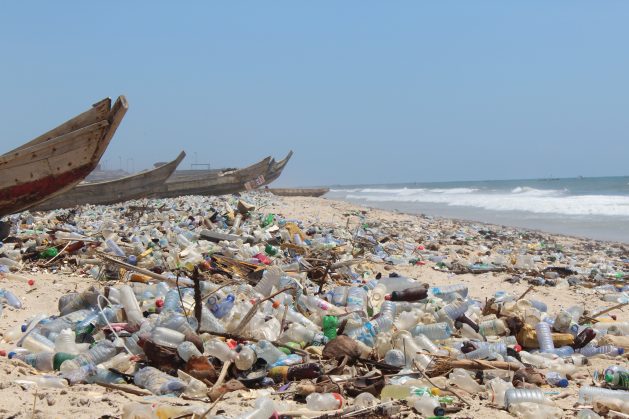The waste we cant afford – Mesti’s failure to utilize the GH¢8.5 million plastic waste fund
The plastic waste problem in Ghana is not just an environmental crisis but a governance crisis.
As plastic waste continues to choke our drains, pollute our rivers, and scar our landscapes, the recent Performance Audit Report from the Auditor-General has revealed a sobering truth, the Ministry of Environment, Science, Technology, and Innovation (MESTI) has failed to utilize over GH¢8.5 million from the Plastic Waste Recycling Fund (PWRF).
This fund, established to support efforts to reduce plastic pollution, has been allowed to accumulate unused while Ghana’s streets and waterways are awash with plastic waste. According to the report, by the end of 2023, the PWRF had collected GH¢8,593,442 from levies on imported plastics. However, due to a lack of internal guidelines and accountability, these funds have not been deployed to address the crisis they were meant to resolve.
The Irony of Neglect
It is infuriating to think that, in a country where 840,000 tonnes of plastic waste are generated annually, only 9.5% of this waste is recycled. The rest of it, according to the report, ends up in drains, rivers, and landfills, or is simply burned in the open, releasing dangerous pollutants into the air. We live in an era where climate change and environmental degradation are no longer distant concerns—they are right here on our doorstep. Floods caused by choked drains, polluted water bodies, and degraded soils are real problems affecting lives and livelihoods.
Yet, MESTI, the very institution mandated to lead the fight against this menace, seems to have failed in its duty. The report shows that the ministry didn’t develop guidelines to utilize the GH¢8.5 million for providing plastic segregation bins, improving recycling infrastructure, or even funding public education on waste disposal. It’s as if the ministry sat on its hands while the plastic waste problem spiralled out of control.
No Accountability, No Progress
It’s important to note that the Plastic Waste Recycling Fund wasn’t just a savings account. It was designed to serve as a lifeline for initiatives to combat plastic pollution. For the fund to be effective, it needed transparency and careful management neither of which was evident. The Auditor-General’s report points out that MESTI didn’t submit quarterly or annual financial returns to the Ministry of Finance to track the fund’s use. The lack of accountability has created a vacuum that allows funds to go unused while plastic continues to pile up.
The Ghanaian public deserves answers. How is it possible that such a crucial resource was left untouched for so long? Why wasn’t there a stronger push to use the PWRF for the very purpose it was created? And most importantly, why is there no urgency in addressing an issue that directly affects our health, environment, and economy?
The True Cost of Plastic Waste
We often discuss the environmental impact of plastic waste, but we should also consider its economic and social costs. Poor waste management is directly linked to flooding, which devastates homes and businesses. Plastic pollution clogs drainage systems and water bodies, leading to floods that cost millions in repairs and rehabilitation efforts. Additionally, the health risks posed by the open burning of plastic waste are immense respiratory illnesses, cancers, and other diseases that thrive in such toxic environments.
Imagine if even a fraction of the GH¢8.5 million had been used to provide plastic segregation bins for households. Imagine if recycling companies had received the support, they needed to expand their capacity. We could be living in a cleaner, safer environment. Instead, we are left to suffer the consequences of a ministry that appears indifferent to its responsibilities.
Call to Action: A Way Forward
This is not just about holding MESTI accountable. It’s about calling for a comprehensive and effective strategy to manage plastic waste. We need more than just laws and levies we need action. MESTI must immediately implement the necessary guidelines to utilize the Plastic Waste Recycling Fund. The ministry must collaborate with local governments, the private sector, and civil society to ensure the funds are used effectively.
The public also has a role to play. We must demand transparency from our institutions. We must insist on proper waste management systems in our communities. If the government is serious about transitioning to a circular economy, where plastic waste is not merely discarded but transformed into useful products, then it must start by using the resources at its disposal wisely.
As citizens, we can no longer tolerate the systemic neglect of such a critical issue. The environment does not wait for bureaucracy. Every day we delay, the plastic waste piles up, and the problems worsen. It’s time for MESTI to rise to the occasion and take charge of plastic waste, using the tools and resources it already has. The GH¢8.5 million is not just money sitting in an account it’s the hope for a cleaner, healthier future.
MESTI, the ball is in your court. It’s time to act.



